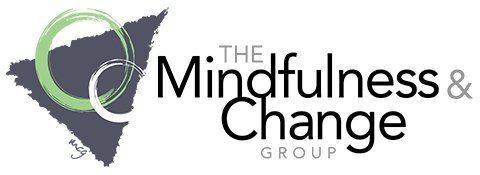Understanding the Link Between Social Anxiety and Substance Abuse: How Therapy Can Help
Social anxiety disorder (SAD) and substance abuse are two conditions that often coexist, creating a complex challenge for those affected. Individuals with social anxiety may turn to substances like alcohol or drugs as a way to cope with their intense fear of social situations. However, this form of self-medication can lead to a dangerous cycle that exacerbates both issues. This article explores the connection between social anxiety and substance abuse, and how therapy can be a crucial intervention in breaking this cycle, especially for those in the Greater Boston area.
The Connection Between Social Anxiety and Substance Abuse
Social anxiety disorder is marked by an overwhelming fear of criticism, embarrassment, or humiliation in social situations. This fear can be so debilitating that individuals may go to great lengths to avoid social interactions altogether (Stein & Stein, 2008). Unfortunately, one common coping mechanism for people with social anxiety is the use of alcohol or drugs to reduce their anxiety and make social situations more bearable.
Substance use initially appears to provide relief by lowering inhibitions and reducing anxiety. However, over time, this reliance on substances can lead to dependence and addiction. Studies indicate that people with social anxiety are at a greater risk of developing substance use disorders than the general population (Buckner et al., 2008). This is particularly true for alcohol, as it is often readily available and socially accepted as a means of coping with anxiety (Carrigan & Randall, 2003).
The Cycle of Self-Medication
The self-medication hypothesis suggests that individuals with social anxiety may use substances as a way to manage their symptoms, but this can lead to a vicious cycle. Initially, the substance may alleviate anxiety, making social interactions more manageable. However, as tolerance builds, individuals may need to consume more of the substance to achieve the same effect, leading to increased use and the potential for addiction (Khantzian, 1997).
Furthermore, the aftermath of substance use, such as hangovers or withdrawal symptoms, can exacerbate anxiety, creating a cycle where the individual feels the need to use substances repeatedly to cope. Over time, this can lead to both an escalation of substance use and a worsening of social anxiety symptoms (Kushner et al., 2000).
How Therapy Can Help Break the Cycle
Therapy is a critical intervention for individuals struggling with both social anxiety and substance abuse. Several therapeutic approaches have been shown to be effective in treating these co-occurring disorders:
Cognitive-Behavioral Therapy (CBT): CBT is one of the most effective treatments for social anxiety disorder. It helps individuals identify and challenge the negative thoughts and beliefs that contribute to their anxiety. By addressing these cognitive distortions, individuals can reduce their anxiety and develop healthier coping mechanisms that do not involve substance use (Heimberg et al., 2010).
Exposure Therapy: Exposure therapy is a specific form of CBT that gradually exposes individuals to the social situations they fear in a controlled and systematic way. This helps desensitize them to these situations and reduces the urge to use substances as a coping mechanism (Craske et al., 2008).
Integrated Treatment Programs: For individuals with co-occurring social anxiety and substance use disorders, integrated treatment programs that address both conditions simultaneously are often the most effective. These programs combine elements of CBT, exposure therapy, and substance abuse counseling to provide comprehensive care (Brady et al., 2007).
Mindfulness-Based Therapy: Mindfulness-based techniques can also be effective, allowing individuals to observe their thoughts and emotions with acceptance and without judgment. This can reduce the impulsive urge to use substances in response to anxiety (Bowen et al., 2009).
Finding Help in the Greater Boston Area
For those in the Greater Boston area, seeking help for social anxiety and substance abuse is a crucial step toward recovery. MCG offers specialized therapy programs designed to address both conditions, providing a safe and supportive environment for individuals to work through their challenges. Our team of experienced therapists is skilled in evidence-based methods designed to help individuals overcome self-medication and adopt healthier coping strategies for social anxiety.
The link between social anxiety and substance abuse is well-documented, with many individuals turning to substances as a way to manage their anxiety. However, this approach often leads to a cycle of dependence and worsening symptoms. Therapy offers a path to recovery by addressing the underlying causes of social anxiety and providing healthier coping strategies. For those in the Greater Boston area, seeking professional help can be the first step toward breaking the cycle and achieving long-term mental health.
References
Bowen, S., Chawla, N., & Marlatt, G. A. (2009). Mindfulness-based relapse prevention for addictive behaviors: A clinician’s guide. Guilford Press.
Brady, K. T., Haynes, L. F., Hartwell, K. J., & Killeen, T. K. (2007). Substance use disorders and anxiety: A treatment challenge for social workers. Social Work in Public Health, 23(2), 103-120.
Buckner, J. D., Heimberg, R. G., Ecker, A. H., & Vinci, C. (2008). A comprehensive examination of the experience of marijuana use by socially anxious adults. Addictive Behaviors, 34(2), 155-160.
Carrigan, M. H., & Randall, C. L. (2003). Self-medication in social phobia: A review of the alcohol literature. Addictive Behaviors, 28(2), 269-284.
Craske, M. G., Kircanski, K., Zelikowsky, M., Mystkowski, J., Chowdhury, N., & Baker, A. (2008). Optimizing inhibitory learning during exposure therapy. Behaviour Research and Therapy, 46(1), 5-27.
Heimberg, R. G., Liebowitz, M. R., Hope, D. A., & Schneier, F. R. (2010). Cognitive behavioral therapy for social anxiety disorder: Evidence-based and disorder-specific treatment techniques. Journal of Consulting and Clinical Psychology, 78(5), 743-750.
Khantzian, E. J. (1997). The self-medication hypothesis of substance use disorders: A reconsideration and recent applications. Harvard Review of Psychiatry, 4(5), 231-244.
Kushner, M. G., Abrams, K., & Borchardt, C. (2000). The relationship between anxiety disorders and alcohol use disorders: A review of major perspectives and findings. Clinical Psychology Review, 20(2), 149-171.
Stein, M. B., & Stein, D. J. (2008). Social anxiety disorder. The Lancet, 371(9618), 1115-1125.
